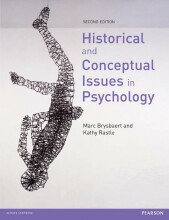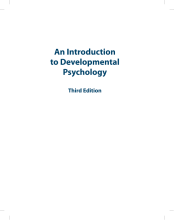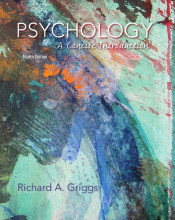Scientific revolution
36 important questions on Scientific revolution
In the middle ages, how was the worldview different from ours today?
- Church is authority on knowledge:
- the earth is 6000 years old
- man is not an animal
- the sun revolves around the earth
- heaven and hell are real (memento mori!)
- Thinking does not take place in the brain but in the immaterial mind
- The ancient Greeks knew everything; with Aristotle and the Bible you have nearly all knowledge
- Scholars therefore have the task to preserve this knowledge rather than to generate knowledge
What did augustine contribute to knowledge?
- He came up with the first learning theory
- children learn to connect objects to words because their parents point at objects when they speak of them.
- first to discover the unconscious;
- he figured that when we forgot something it isn't completely lost from our head, otherwise we wouldn't try to search for it. When we retrieve the memory we retrieve it from our head so it must have been somewhere we couldn't access it first.
- discovers the problem of other minds; how do we know if other people also have consciousness?
Describe the argument of analogy for consciousness
- Higher grades + faster learning
- Never study anything twice
- 100% sure, 100% understanding
What is the ptolemaic system?
- It is a model of how the universe looks and works
- it states that the earth is the middle of the universe; all celestial bodies orbit around the earth
What was a problem with the ptolemaic system and how was it solved?
- If the system was true you would expect the planets to glide by the horizon just like the sun does.
- in reality the planets would glide by, then reverse their path for a bit after which they continued their original path, this movement is called retrograde motion
- this is solved by adding epicycles to the system, this means that while planets move around the earth they also spin around a certain middle point themselves and this middle point moves around the earth.
- this feature makes the ptolemaic system a complex mathematical system.
What did copernicus bring to the table when it comes to the ptolemaic system?
- He was the first to really doubt the model
- proposed a new model, the heliocentric model in which the sun is the sun is the middle point.
- he came up with it in 1514 but only published it 1543, because he was uncertain about the truth of the model and was afraid of the church and to get laughed at.
What were some objections on the heliocentric system by copernicus?
- The model does not describe the data very well and is as complex as the Ptolemaic: so what do we gain?
- Why aren't we thrown into space if the earth is indeed orbiting the sun?
- If the earth rotates, why does a stone you throw from a tower fall right down?
- Why isn’t the moon also orbiting the sun?
What did galileo galileï do for science?
- He took copernicus' work very seriously
- wrote a book in which he rejects all the objections on the heliocentric model one by one.
- in this book a foolish character is present, simplicio, which represented the views from the church.
How did galileï counter the objection on the heliocentric model that questions why we don't feel it when we are spinning around in space and around the sun?
- He created a thought experiment with a boat.
- with this he showed that movement is relative
- if the boat is standing still, all movement of objects thrown or flying will be normal
- if the boat is accelerating the movement of objects will be different from normal
- if the boat is floating with a constant speed, movement will be normal again.
- thus, since the earth moves with a constant speed you feel like it is standing still.
How were galileï's methods revolutionary for his time?
- He started doing experiments with falling objects etc.
- describing the outcome using math
- he was an inspiration for einstein and the first to work in this way.
How do galileï and aristoteles differ in their views and methods?
- Galilei made a big step forward in recognizing the value of the experiment
- aristotle was also an empiricist but never manipulated the situation only observed the natural world.
- Galileo is credited with the insight that artificial conditions provide insight into the natural world.
What did kepler do for astronomy?
- Discovers that planets describe ellipses instead of circles.
- This suddenly makes the heliocentric model much simpler than the Ptolemaic model
- proved that the earth rotates around the sun
What did francis bacon do for science?
- He first wrote about how to perform science
- articulates for the first time the scientific method as a combination of observation and reasoning
- but he sees that human psychology interferes with finding the truth; humans posses fallacies that obstruct us from gaining knowledge
Describe bacon's idols
three types of idols;
- idols of the tribe
- idols of the cave
- idols of the marketplace.
- idols of the theatre
What are idols of the tribe, by bacon?
- Fallacies that all humans commit, and that are inherent to human nature.
- We all tend to make typical human mistakes – e.g., being wrong in a visual illusion
- These are idols that all humans suffer from.
- Seeing order and regularity where it is not
- Seeking confirmation and ignoring refutations of what you believe
What are the idols of the cave by bacon?
- Fallacies we commit because we belong to a certain culture, have certain interests and habits (and are not the same for all people):
- e.g. “men are smarter than women” or “democracy is the best form of government”.
- Aristotle who saw “logic” in everything
- Prejudices in education
- Things you don't actually believe because you have a lot of evidence for it but rather because many people around you believe it
- these fallacies are caused by experiences and other people, they are personal for you.
Describe idols of the marketplace by bacon
- fallacies that are caused by language and the shortcomings of language.
- the way that language represents certain words is not consistent with the actual objects corresponding with the words which causes misconceptions about the concept.
- Fallacies we commit because we can talk about things
- “the ill and unfit choice of words wonderfully obstructs the understanding”
- For example, some words don't refer to anything, such as “witch” But, language treats such nouns as if they do refer to existing things
- This can sometimes lead us to mistakenly think that these things are existing...
How do we call a fallacy of ambiguity, when an abstraction (abstract belief or hypothetical construct) is treated as if it were a concrete real event or physical entity?
How does reification relate to psychology and to idols of the marketplace?
- We have words for abstract things
- We tend to assume that nouns refer to something that really (physically) exists. For example a disorder
- As a result we easily assign all kinds of properties: e.g.: “if something exists, it must exist somewhere, so psychological properties are in the head”.
- we treat depression like it's a tumor, you can see it when we open the skull up.
Describe idols of the theatres by bacon,
- Fallacies we commit because we believe what authorities say
- Bacon gives the example of old philosophical schools like those of Aristotle and Plato
- Bacon criticizes the Ancient Greeks without holding back
Why was bacon very critical of aristotle?
- Bacon accuses Aristotle of selecting those observations that support his theories
- Many of Aristotle’s theory do not seem to be based on observations
- Aristotle doesn’t use observations to test theories, but rather induces knowledge from observations
How are bacon's ideas still relevant?
- Today the idols, or fallacies, are established and proven
- Science relies on admitting the human deficit, not denying it.
- still science relies on a scientific method to protect our knowledge gaining from our own fallacies like bacon intended.
Describe Bacon's Novum Organum
- It is a newly proposed method on how to perform science
- he argues that we should overcome our prejudices (“idols”) by following a methodology
- This methodology is normative: the researcher must adhere to certain rules of the game
- the Novum Organum is the first real methodology book
What was bacon's view on rationalism and empiricism?
- They go hand in hand according to him
- because we cannot trust ourselves, we must always test theories against observations
- he stresses the importance of experiments, and manipulate nature to learn about it's natural state
What did isaac newton do for science?
- He integrates the insights of Copernicus, Galileo, Kepler, and others into one great theory
- This theory is “exact”: it is written almost entirely in the language of mathematics: this is new and makes a big impression
Describe this new theory by newton.
- He wrote The Principia Mathematica
- With simple principles (“laws”) Newton explains an enormously rich spectrum of phenomena
- Never before has such a powerful theory of nature been put forward
How is newton's work influential for psychology today?
- Psychologist sometimes today try to generate general rules to explain a variety of psychological principles like newton did for physics.
- this is called physics envy
How do we call view of the mind–body relation according
to which the mind is immaterial and completely independent of the body?
What were descartes' world views?
- The response of the Roman Catholic Church to Galilei encouraged René Descartes to build a new philosophy of man.
- In this philosophy a clear distinction was made between the soul, which was divine and could not be studied with scientific methods, and the rest of the universe (including the body), which was a complex machine that could be studied scientifically. This became known as (Cartesian) dualism.
- The mechanistic view of the world came to replace Aristotle’s view, which still contained animistic elements.
How do we call world view according to which everything in the material universe can be understood as a complicated machine; discards the notion that things have goals and intentions as assumed by the animistic view?
Isaac newton discovered why planets orbit the sun and why moons orbit planets?
- He got inspired by galilei's experiments with canonballs falling in parabola.
- he discovered that if you placed the cannon on a mountain and shot the ball with enough force, then it would not fall fast enough to touch the Earth but would circle around it, taking away air friction etc this would continue infinitely
- to answer why the cannonball wouldn't just shoot in a straight line into space but orbit around the world he discovered that objects attract each other.
What was the name given to the Western philosophy and cultural life of the eighteenth century, in which autonomous thinking
and observation became advocated as the primary sources of knowledge, rather than reliance on authority?
Since the age of enlightenment, what where the new claims about science?
- Because science is based on observation and experimentation, and not on opinion and authority, it is always right.
- Scientific theories are summaries of observations and, therefore, are always correct as well.
- Because scientific knowledge is always true, it should be the motor of all progress (i.e. it must decide all choices to be made).
How do we call academic disciplines that continued the traditional study of the ancient classics, increasingly supplemented with teachings of contemporary literature and art?
How do we call movement in the late 1700s to early 1800s
that reacted against the mechanistic world view and the emphasis
on reason preached by Enlightenment; it saw the universe as a changing organism and stressed everything that deviated from rationalism: the individual, the irrational, the imaginative, the emotional, the natural and the transcendental?
How do we call name given to a series of discoveries in the seventeenth century, involving Galilei, Descartes and Newton, that enhanced the status of science in society?
The question on the page originate from the summary of the following study material:
- A unique study and practice tool
- Never study anything twice again
- Get the grades you hope for
- 100% sure, 100% understanding
































